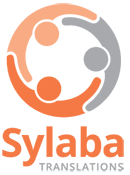It’s common for translation companies to base their quality assurance and recruitment processes in just a single requirement: work with NAATI certified translators. Specially when providing translations that have NAATI certification.
But for us, that’s just the bare minimum. Here is a list of things that are important to us. We firmly believe that there are essential parts of any translation project that will improve the quality of the translations.
1. We brief our NAATI certified translators
We believe that, the better prepared our translators are, the higher quality of work they will produce.
While it’s common for organisations to brief interpreters, they often forget the importance of briefing translators, too.
NAATI certified translators are like marketing professionals – the more they know about your audience, service and organisation, the more effective their work will be and the better able they will be to reach the right audience with the desired message.
When it comes to providing high quality translations with NAATI certification, it’s important for translators to have information about:
- Audience – what is the age, gender and country of origin of the audience? Are they newly arrived or are they long-term residents?
- Document purpose – what is it that you want the audience to know?
- Objective – what do you want the audience to do with this knowledge, what action do you want them to take?
- Distribution channel – how will the message be made available to the audience? Through a written, translated document such as a brochure, distributed by video or audio, or delivered in a personal setting, face-to-face?
Armed with the answers to these questions, NAATI certified translators will be able to ensure their translated messages truly reach their intended audience.
2. We do community consultations
Community consultations are a crucial component of community engagement when translating health promotion messages for migrant communities. Community consultations are also important for any translations whose audience are Australian culturally and linguistically diverse communities (CALD).
This preliminary step ensures the finished translation accurately reflects the beliefs and barriers of the target audience and is understood by those it is intended for.
At Sylaba, we are very specific about what we ask during community consultations, but also leave room for open ended questions.
So, for example, we might ask specific questions such as:
- Does your community believe that cancer can be caused by being a bad person?
- Does your community believe that you can catch cancer from someone else?
But when we are looking for more detail, we might phrase questions this way:
- Domestic violence is a sensitive topic. In your opinion, do you think we should make any changes at all to reflect how this issue is represented in your community?
- The description of each organisation should give the community clear information about the services that each provider delivers. Are these descriptions clear and culturally respectful?
A common mistake is to assume we know how different communities think and what they believe. But we often find our assumptions challenged by new information we receive during our community consultations.
3) Our community checking process is streamlined and purpose-driven
Organisations tend to do community checking by sending a translation to a community representative and asking them to provide “feedback”. In our experience, this doesn’t work. Why not? Most of the time, the community checker fails to identify important issues such as:
- Readability: are concepts easy to understand?
- Cultural: would it be more appropriate to adapt certain content so it’s more suitable for a given community?
Feedback that we often receive, which is not useful for the translation process as it doesn’t improve translation quality:
- Style: re-phrasing the same content without trying to fix a particular issue such as readability, or a mistranslation. This is often referred to as a stylistic change and they are preferential. Preferential changes are not useful for NAATI certified translators to improve the quality of the translations.
- Synonyms: Replacing one word with another word for no good reason. Being able to identify the problem that a suggestion is trying to solve is essential when doing community checking. But this is often disregarded as organisations don’t usually provide a specific brief to community checkers. This is unhelpful for NAATI certified translators.
4) Strategy is important to us
In real estate, it’s location, location, location.
In translation, it’s all about strategy.
While ‘strategy, strategy, strategy’ isn’t nearly so memorable or easy to say, it’s just as – if not more – important than the well known catchphrase for house buying.
NAATI Translation
NAATI stands for the National Accreditation Authority for Translators and Interpreters in Australia. It is the organization responsible for accrediting and certifying translators and interpreters in Australia. NAATI translation refers to the translation of documents or content by professionals who are accredited by NAATI. These professionals have undergone rigorous training and testing to ensure their competence in providing accurate and reliable translation services, especially for official documents, legal papers, and other important materials.
NAATI translation services are often required for various purposes, including immigration and visa applications, legal proceedings, educational qualifications, and more. When you need a translation for official or legal purposes in Australia, it’s often recommended to use a NAATI certified translator to ensure the highest quality and acceptance of the translation by Australian authorities.
Ignore strategy at your peril. Why?
There is so much waste in the translation industry!
There is so much content that:
❌ Has been translated but nobody reads
❌ Has been translated over and over again by different organisations
❌ Is so difficult to understand that nobody can read it
❌ Just doesn’t meet the audience’s needs.
All these problems would be solved simply and easily if NAATI certified translators were briefed around a strategy. Yes, it might take a little time and effort, but the results will save both time and money. With the added bonus that the translation will:
✔ Be read by its intended audience
✔ Not have to be endlessly translated
✔ Be easy to understand
✔ Meet the needs of the audience
Related Posts

Get a quote today
"*" indicates required fields
Subscribe today to receive the latest insights and updates from Sylaba Translations









